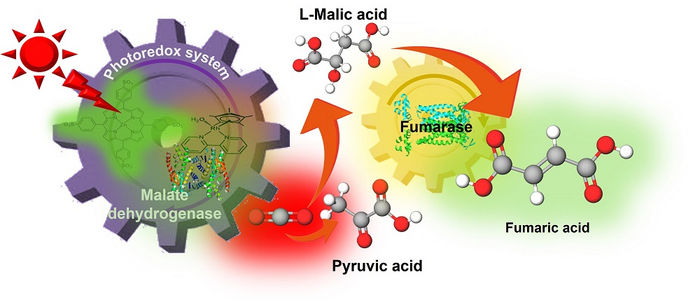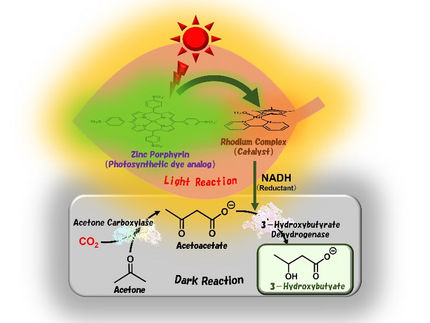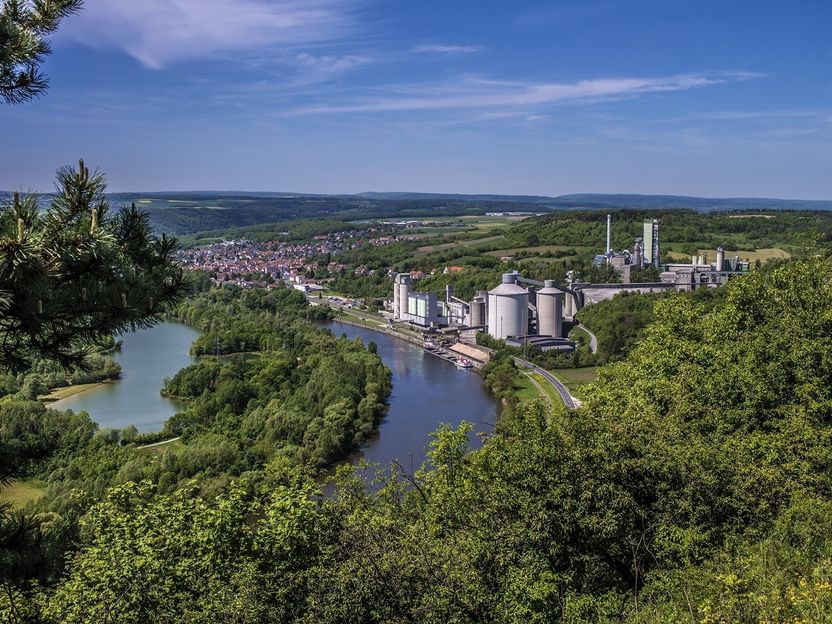Artificial photosynthesis uses sunlight to make biodegradable plastic
Synthesis of fumaric acid by a new method of artificial photosynthesis, using sunlight
In recent years, environmental problems caused by global warming have become more apparent due to greenhouse gases such as CO2. In natural photosynthesis, CO2 is not reduced directly, but is bound to organic compounds which are converted to glucose or starch. Mimicking this, artificial photosynthesis could reduce CO2 by combining it into organic compounds to be used as raw materials, which can be converted into durable forms such as plastic.

Using sunlight to power the photoredox system pyruvic acid and CO¬2 are converted into fumaric acid, by malate dehydrogenase and fumarase.
Yutaka Amao, Osaka Metropolitan University
A research team led by Professor Yutaka Amao from the Research Center for Artificial Photosynthesis and graduate student Mika Takeuchi, from the Osaka Metropolitan University Graduate School of Science, have succeeded in synthesizing fumaric acid from CO2, a raw material for plastics, powered—for the first time—by sunlight. Their findings were published in Sustainable Energy & Fuels.
Fumaric acid is typically synthesized from petroleum, to be used as a raw material for making biodegradable plastics such as polybutylene succinate, but this discovery shows that fumaric acid can be synthesized from CO2 and biomass-derived compounds using renewable solar energy.
“Toward the practical application of artificial photosynthesis, this research has succeeded in using visible light—renewable energy—as the power source,” explained Professor Amao. “In the future, we aim to collect gaseous CO2 and use it to synthesize fumaric acid directly through artificial photosynthesis.”
Original publication
Other news from the department science
Most read news
More news from our other portals
See the theme worlds for related content
Topic world Synthesis
Chemical synthesis is at the heart of modern chemistry and enables the targeted production of molecules with specific properties. By combining starting materials in defined reaction conditions, chemists can create a wide range of compounds, from simple molecules to complex active ingredients.

Topic world Synthesis
Chemical synthesis is at the heart of modern chemistry and enables the targeted production of molecules with specific properties. By combining starting materials in defined reaction conditions, chemists can create a wide range of compounds, from simple molecules to complex active ingredients.





























































